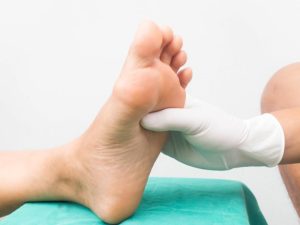At-Home Management of Neuropathy

For those suffering from peripheral neuropathy, you know that there is no one sure-fire method of managing and treating the condition. The care of neuropathy doctors is crucial to pain management and addressing the root causes of your pain, as well as monitoring declines over time. But doctors are not with you all day as symptoms flare, and you may seek alternative methods of relief as well. These home remedies can help you feel empowered about your own care and ease the pain between visits to your doctor or treatments.
General Coping Methods
Living with any chronic pain or disability can be hard, mentally and emotionally. Even when you are unable to eliminate a symptom or are simply not feeling your best, boosting your mood can be an effective way to cope.
Set Priorities Daily: On any given day, think about what tasks you need to complete now and what can wait until another time. Staying active is important, but so is balance and avoiding overexertion. Separate your day into categories like “must do,” “should do,” and “would be nice.”
Get Out of the House: It’s natural to want to stay at home when you’re in severe pain, and sometimes this is the right thing to do. But this can also make it easy to focus on your pain and dwell. If you feel able, go for a short walk to get some fresh air or see a movie with a friend.
Seek and Accept Help: Asking for help when you need it can be difficult, but is a sign of strength in the face of illness. This may mean talking to your neuropathy doctors about needing to try new or more intense treatments, or simply asking a loved one for help with simple tasks. You can also look for support groups, either in person or online, to simply have someone to relate to and grow your community.
Sleeping with Neuropathy
One of the most recommended forms of self-care is getting the proper amount of good quality sleep, but those with neuropathy know this can be a difficult task. This can cause a sort of vicious cycle, where a lack of sleep causes stress and anxiety, flaring up your pain and making sleep more difficult.
It may not be possible for you to get the recommended seven to nine hours of sleep every night, but there are methods you can use to improve your sleep quality in the face of chronic pain.
Experts suggest trying the following:
- Reduce caffeine intake, particularly in the afternoon
- Quit smoking
- Limit or eliminate alcohol consumption
- Keep any naps one hour or less
- Don’t spend too much time in bed when awake
- Keep a regular daily routine, including a bedtime and wakeup time
- Make your bed as comfortable as possible
- Keep electronics out of the bedroom
Managing Neuropathy At Home
In addition to coping with some of the effects, there are things you can do at home to improve your condition or prevent worsening on your own. Any of these methods should be undertaken with the consent of your neuropathy doctors who know your specific case.
Take Care of Your Feet
Check your feet daily for any signs of blisters, cuts, or calluses. Eliminate tight shoes or socks, opting instead for loose cotton socks and padded shoes. If your feet are prone to being sensitive or overheating, you can make sure to keep them free.
Manage Your Diet
Healthy meals can be an important way to prevent neuropathy or manage a chronic condition. These meals should emphasize meats that are low in fat and dairy products, in addition to a lot of fruits and vegetables, along with moderate whole grains.
Cut Out Vices
Alcohol consumption should be limited while smoking should be avoided altogether. Smoking has a negative impact on circulating, increasing the risk of foot problems or even amputation in some cases of neuropathy.
Massage
Circulation in the hands and feet is important with neuropathy, as it can stimulate nerves and may relieve pain. You can massage your own hands and feet or have someone do it for you.
Avoid Pressure
Pressure for long periods of time can impact circulation or even lead to nerve damage. Behavior such as crossing your knees or leaning on your elbows can have this impact.
If you are ever unsure about behaviour or coping method, speak with your neuropathy doctors for advice.
